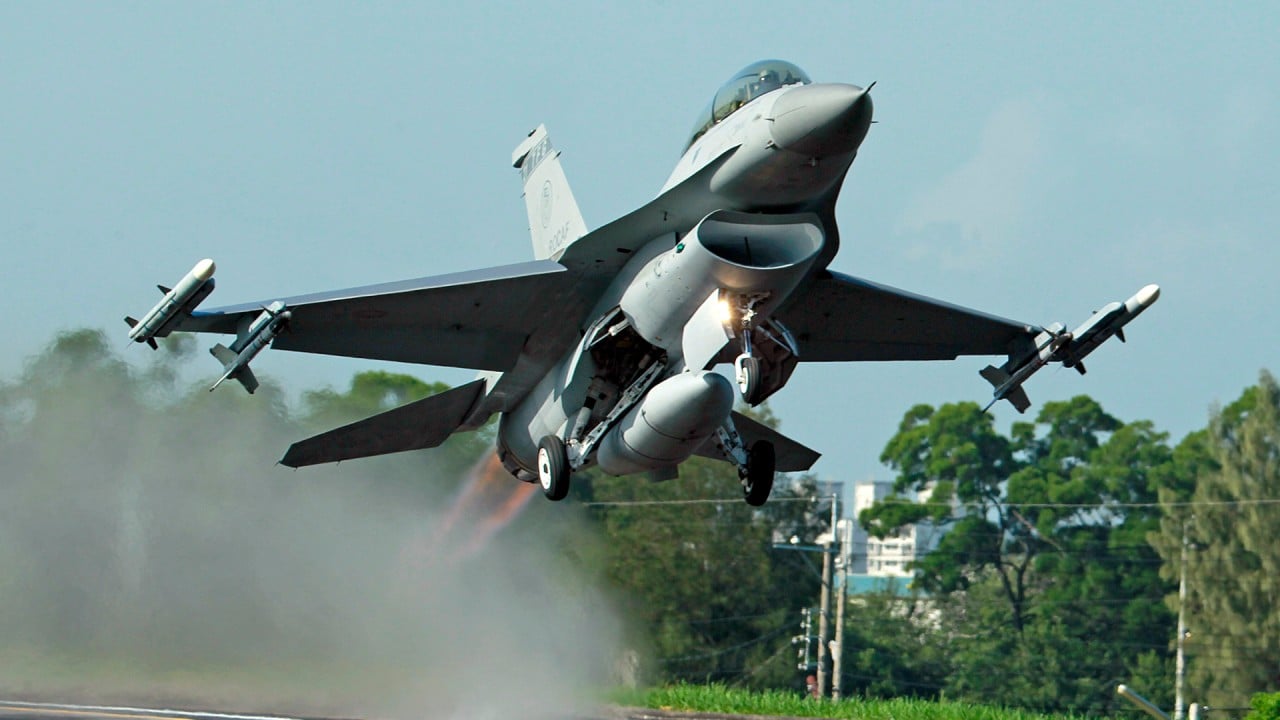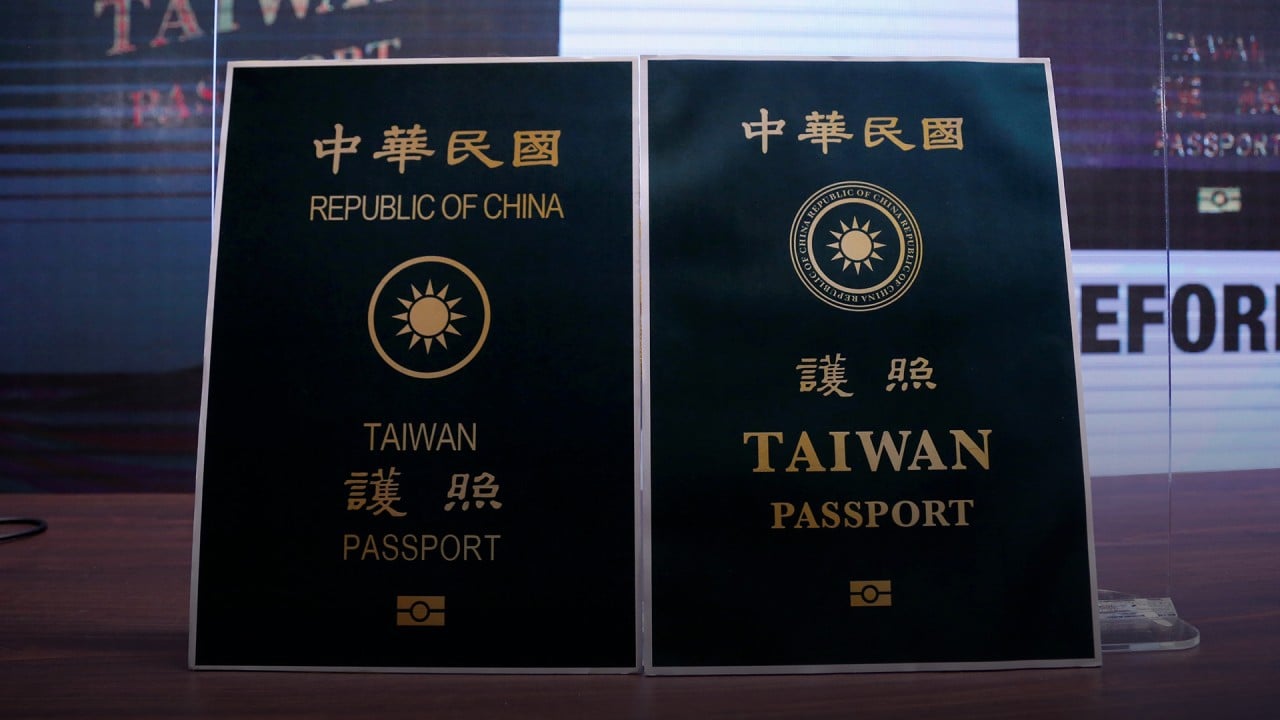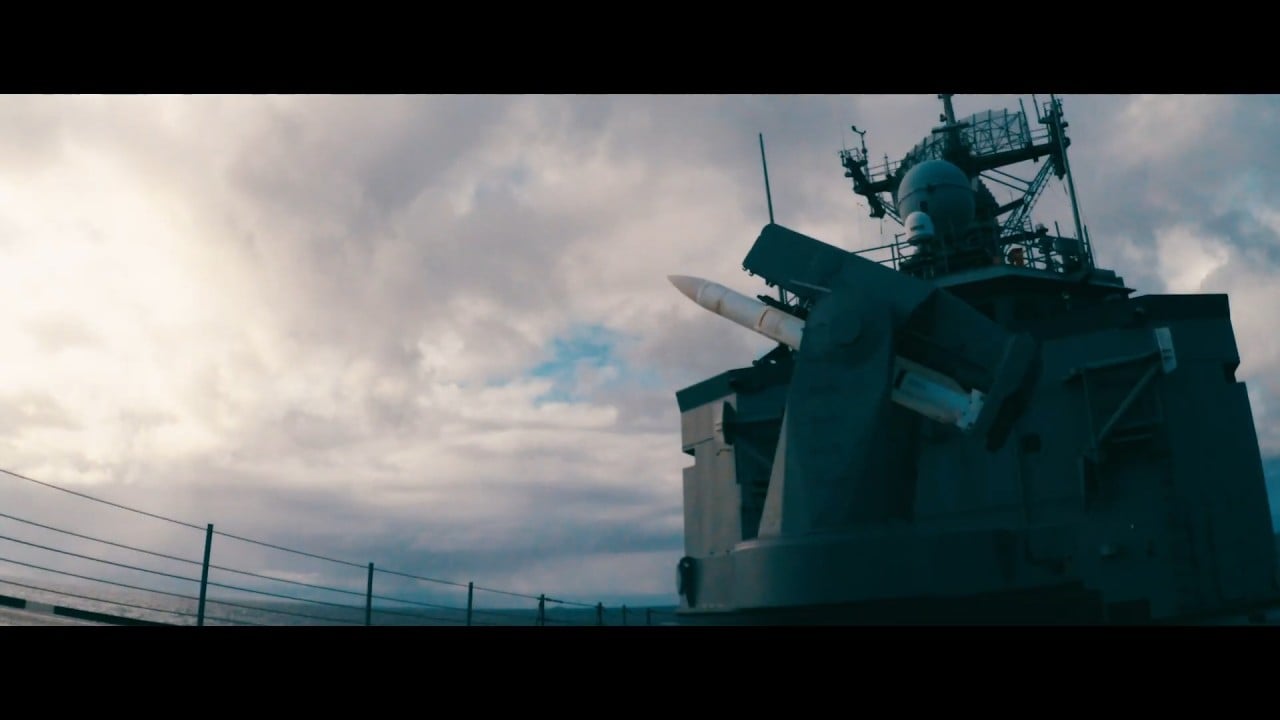
Latest US arms sale to Taiwan ‘will help destroy half of any Chinese invasion force’
- The State Department has approved a US$2.4bn deal to supply the island with Harpoon anti-ship missiles to bolster its coastal defences
- Deal to supply Boeing-built weapons comes after China said it would sanction a subsidiary of the aerospace giant and three other US firms
Taiwan’s ability to strike back at any attack from mainland China has received a further boost after the US approved another potential arms deal to boost its coastal defences.
Taiwanese officials said the deal would help the island achieve its goal of being able to destroy half of any PLA invasion force within five years.
The arms deal is the second in a week and the ninth approved since Donald Trump became president in 2017.

02:28
Washington’s US$1.8 billion arms sale to Taiwan is first weapons deal of its kind in over 40 years
According to the US State Department, Taiwan will be able to employ a highly reliable and effective system to counter or deter maritime aggression, coastal blockades and amphibious assaults.
“This capability will easily integrate into existing force infrastructure. The recipient will have no difficulty absorbing these systems into its armed forces,” it said.
Taiwan coastguard ‘drives away’ Chinese vessels including sand dredger
China‘s defence ministry spokesman Ren Guoqiang said the US arms sale to Taiwan could not work and would only lead to a dead-end.
“Chinese military has resolute determination, full confidence and enough capabilities to thwart all kinds of foreign interference and pro-independence moves ... China will continue pushing forward the unification process,” Ren said.
Taiwan’s deputy defence minister Chang Che-ping told a press conference on Tuesday that the latest deal would help the self-ruled island achieve its goal of being able to destroy half of any enemy force by 2025, saying: “We hope to increase the number [of missiles] so that we can build up our combat power before then.”
The Harpoon Block II missiles at the centre of the deal are subsonic anti-ship missiles with a range of around 125 kilometres (78 miles) that can also strike targets on land such as missile launch sites or port facilities.
Jerry Song, senior editor of Taiwan-based Defence International magazine, said Taiwan already had Harpoons that could be launched from submarines, ships and aircraft, adding that the land-based missiles would fill in the gaps in the system.

01:55
Taiwan unveils new passport design to avoid confusion with mainland China’s
Song also said they would supplement the island’s own Hsiung Feng-II (or Brave Wind-II) missiles, an anti-ship system developed by the government-funded National Chung-Shan Institute of Science and Technology. The Hsuing Feng III is a medium-range supersonic missile with the capabilities to destroy both land and sea-based targets.
Chieh Chung, a national security researcher at the National Policy Foundation, a think tank affiliated with Taiwan’s biggest opposition party the Kuomintang, said: “The second proposed sale in a week indicates the US has gradually normalised its weapon supplies for Taiwan, unlike when [Barack] Obama was president and all proposed sales had to reach a certain level before they would be reviewed and approved,” he said.
Taiwan coastguard ‘drives away’ Chinese vessels including sand dredger
Song Zhongping, a Hong Kong-based military commentator, said: “Although [the deal] will boost Taiwan’s attack ability a little bit when compared to the past, it cannot survive a real war and can barely make any change to the balance of military power between Beijing and Taipei, as the Chinese military can hit and destroy those attack units with all sorts of precision-guided weapons.”
The Trump administration has stepped up arms sales to Taiwan in recent years, and last week the State Department sent Congress notification that it had approved a US$1.8 billion deal that included cruise missiles capable of hitting targets on the mainland, rocket launchers and surveillance equipment.

01:22
Taiwan posts video of troops ‘fending off attack from mainland’ amid worsening cross-strait tensions
Both deals must now be approved by Congress and then be signed off by the president.
Beijing – which regards the island as a breakaway province that must eventually be reunited with the mainland, by force if necessary – has consistently attacked the deals.
On Tuesday, Wang Wenbin, a spokesman for China’s foreign ministry, told a regular press briefing that the latest deal was interfering with China’s internal affairs and destabilising relations across the Taiwan Strait.
“The US should stop selling weapons to and cut military ties with the island to avoid further damaging Sino-US relations. China will take necessary measures to safeguard national sovereign, safety and interests,” said Wang.
Additional reporting by Catherine Wong


